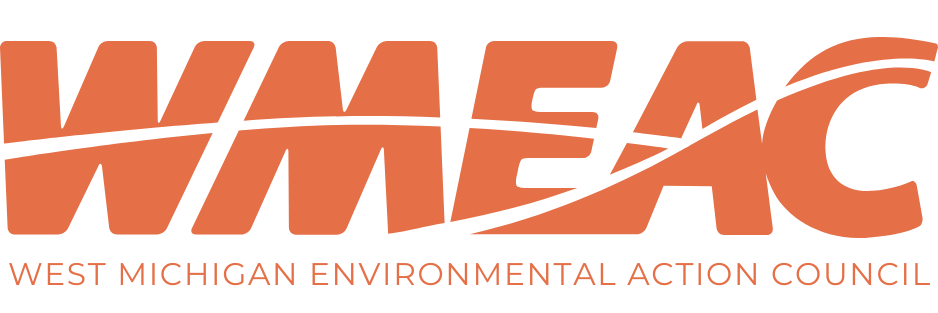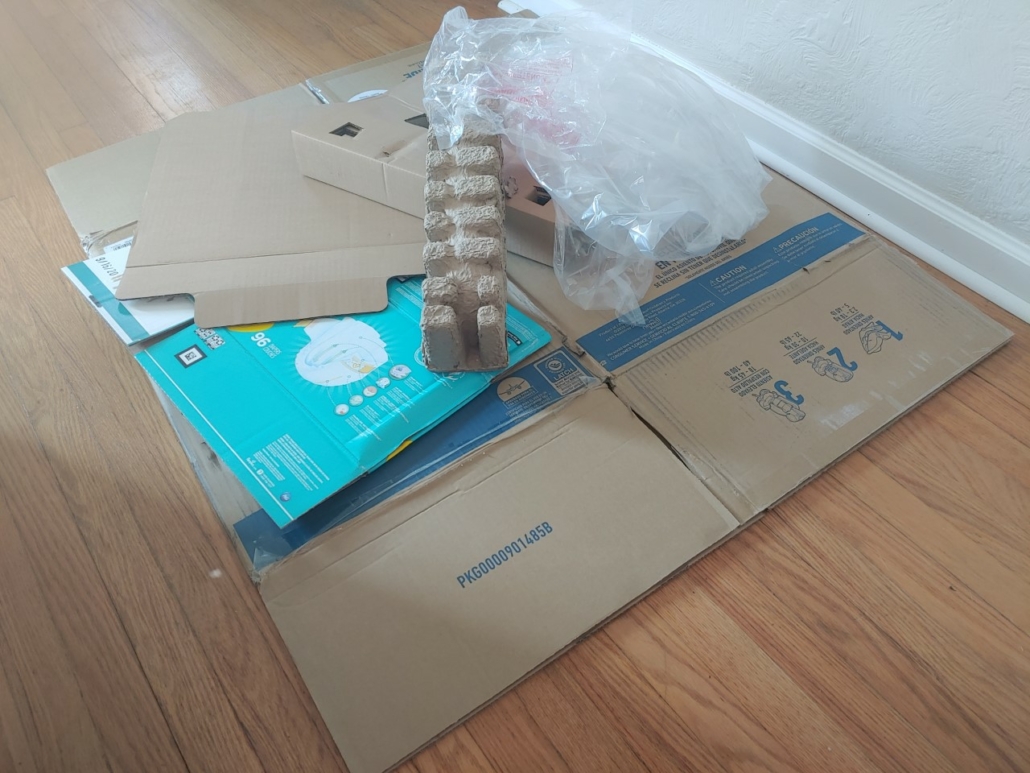Written by Sarah Gibes; Photo Credit Carlos Calderon
Tanya Cabala, WMEAC’s Lakeshore Outreach Organizer, started to notice how much waste she produced when she had her first child.
“I was using plastic diapers,” Cabala said. “Everybody did. And I was using lots of paper plates and napkins. As a new mom, it was just easier. I’d put the garbage bag out by the road for pickup and never think about it,” Cabala said.
Sustainability—making sure that natural resources will be available for future generations—wasn’t a popular topic at the time Cabala was a young parent. “It was a different time,” Cabala said. “We didn’t have the internet.”
After noticing her family’s wastefulness, Cabala became interested in recycling.
“I had this feeling I was making a lot of garbage. I had heard about Goodwill bringing up a semi truck to the library for recycling.” She got connected to a lifelong environmentalist at her local library and together they started a concerned citizen environmental group.
Her group soon got wind of a proposed landfill expansion in their town and mobilized to stop it.
“I suddenly found that I was up in front of a group of several hundred people, talking about the landfill expanding, and how we didn’t want that—we wanted to have more recycling,” Cabala said. The effort expanded enormously. “It just happened very organically,” Cabala said.
“As part of that process, I also started realizing my community had serious pollution in and around our lake and we were in the national news,” Cabala said. She then resolved to work as a citizen activist in her community—all as a result of her desire to live more sustainably as a young parent.
Carlos Calderon, Water Programs staff member at WMEAC, had his first baby in early February. He and his family have worked to develop sustainable methods of parenting.
Calderon had worked to develop a sustainable lifestyle before he became a parent. The initial phase was getting used to the idea of more durable long-term use household items.
“I insisted on doing as much recycling as possible and getting a lot of reusable non-disposable items before the baby came,” Calderon said. “We really have tried to move away from plastics and using food containers that are glass and silicone. We don’t use single-use plastic containers or ziploc bags.”
Calderon emphasized the amount of preparedness it took to work towards sustainable parenting.
“It has really taken years of getting used to recycling and composting,” he said. “The small-scale sustainability things really count. For example, we made sure all the lights were off when we weren’t using them, or making sure the programmable thermostat was set at a reasonable temperature in the winter and the summer, so that we weren’t overusing or wasting those resources.”
He also built a raised-bed garden in his backyard so that his family could grow and produce their own vegetables and food.
“The food thing is a big thing for me,” Calderon said. “We’ve really tried to produce a lot of food for ourselves.” He has purchased a greenhouse for his raised vegetable garden, and he hopes to grow vegetables such as peas and beets to puree for baby food. He hopes that he can decrease the amount of plastic waste he and his family uses by producing more of their own food.
“We don’t want to have all those food packages in our house if we can avoid it,” Calderon said.
Despite Calderon’s efforts, he recognized that children make sustainability difficult. “We’ve had to turn up our thermostat because the normal temperature my wife and I have had wasn’t warm enough for an infant,” Calderon noted. “We also do more laundry each week and have the lights on more often because we are up at all hours.”
The pandemic has added barriers to Calderon’s sustainability efforts. Because large events such as baby showers haven’t been possible during the COVID-19 crisis, his family has received gifts through the mail. Online shopping and gifting has a high carbon footprint, both from the increase in plastic-based packaging and the fuel used for shipment and delivery.
“I’ve made multiple trips to the recycling center to drop off a truckload of cardboard boxes,” Calderon said. He also noted that many of the safe, non-plastic products his family wanted to invest in were not available in West Michigan and thus had to be ordered online. “It’s difficult to live sustainably when sustainable products aren’t available near you,” he said.
Although sustainable parenting can be enormously challenging, particularly during a pandemic, it’s a challenge worth overcoming.
“I became a citizen environmental activist because I wanted my kids to have a better future,” Cabala said. “I felt once I knew about the problems, I could not ignore them. I wanted my kids to know that. It’s come to define who I am. It has definitely been worth it.”
There are so many ways that parents and families can live more sustainably and even become active in their own communities for broader impact. WMEAC is a good place to get started.
Invest in sustainable products:
- Invest in upcycled materials. Purchase baby products from thrift or second-hand stores. Pass on baby and childhood clothing and other products to other parents once your children outgrow them.
- Use reusable diapers. Americans throw away about 20 billion diapers per year. That’s about 3.5 million tons of waste. Plastic diapers also also contain plastic materials that cause long-lasting environmental damage. Reusable diapers decrease landfill tonnage as well as protect the natural environment.
- Use cleaners that don’t contain plastics or harmful detergents.
- Start a raised garden bed to produce more of your own food and reduce the amount of food packaging you bring into your home.
Educate your kids about the natural world and sustainability:
- Take your kids on nature walks and visit forest preserves.
- Teach them how to live sustainably by example. Invest in rain barrels. Turn off lights when you aren’t using them
- Read books about sustainability and protecting the environment.
- Reduce, Reuse, Recycle. Show your kids how to value the natural world by reducing their consumption, reusing items, and recycling materials when possible.
Get involved in the community environmental movement in your area:
- Research local environmental organizations, such as WMEAC.
- Participate in outreach events, such as rain barrel workshops, community nature walks, and river cleanups.
- Educate yourself about your community’s environmental issues, such as landfill management and pollution mitigation.
- Get engaged in community movements to reduce pollution, protect water resources, and ensure that the environment will be a safe and available resource for future generations.


